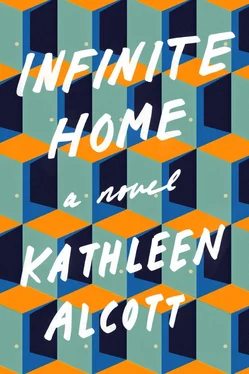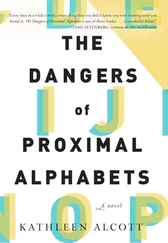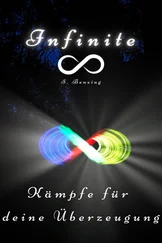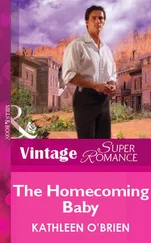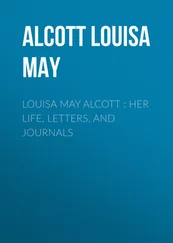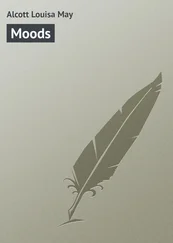—
EDITH WAS THE WORD Adeleine pushed out of her mouth slowly; what she’d intended to say— Help— had died somewhere on its escape. The shadowed suggestions of both their bodies, Edith’s flattened against the bed and Adeleine’s drawn close to her on a nearby chair, stretched across the room when cars passed, threatening to disintegrate. Adeleine liked the idea of confessing to Edith, the guarantee that nothing she mentioned would be long considered or captured.
“I haven’t left the house in more than six months. The closest I came was standing in the foyer when the ambulance came for you, and even that made me feel like I was in the mountains with not enough air.
“I used to be better. Brunches on Sundays with other hungover people in sunglasses. Parties — crowded ones. I always knew the corner store guy. The last one gave me boxes when I moved and kissed my cheek.”
The last fact was too much: the shared kindnesses she’d once enjoyed now only measurements of how she’d deteriorated. She leaned hard against the rigid wicker and pushed away images of herself balancing a grocery bag on her hip while she stopped to pet an acquaintance’s dog, biting her lip while she listened to a neighbor’s story of a hellish Christmas. The truth of her life came from her easily now, and she was freed to speak into the room that was not empty of love but also not quite listening.
“Edith? Thomas is so good to me. I’m worried I can’t or won’t be what he needs, or that he’ll leave me if I don’t get better. And that he’s with me so he can keep hiding from the rest of his life.”
“Oh, June. My sister.”
Edith reached her hand, which appeared as rough and inflexible as reef, towards Adeleine’s and covered it. She spoke calmly, as though reciting a multiplication table, facts that would never become less true.
“It’s not your job to say why someone loves you, is it?”
Adeleine, eyes wide, sniffed and shook her head. “No?”
“And you’ll never see the way your skeletons can dance. Not if you keep them to yourself. You’ve gotta let those bones twist!” Even in the dimness, Adeleine could make out true delight, the glint of silver-crowned molars as Edith smiled.
Edith’s grip tightened, and Adeleine watched the slack, spent skin on her arm collect as the muscles beneath it contracted.
“Now,” she instructed — Adeleine heard a woman who facilitated long-term plans and kept appointments—“come lie down here, next to me. You need your sleep after a long trip like that.”
Adeleine took in Edith’s fermenting odor, the brackish taste of her own weeping. Unable to decline even such a confused offer of warmth and rest, Adeleine surrendered and crawled towards her. The two women curled on top of the quilt sewn by hand sixty years before, their backs to each other but their hands linked, and began breathing deeply.
Two hours later, Adeleine woke to the sudden light of the bedside lamp. The living room overhead, the bar above the stove, the bulbs in the bathroom: they came on inch by inch, as though moved by flood, the tink s of the filaments like champagne flutes meeting somewhere nearby.

IN THE 1966 mint-green Dodge Dart that Claudia had purchased for $4,250 the day she’d quit her job, Paulie sat up front with the window way down. The wind pushed back towards Edward, examining the contours of his receding hairline. Under her foot, the give of the gas pedal galvanized Claudia’s already electric mood; she kept turning up the volume of Pet Sounds and letting her left hand float out the window. Edward, strapped in by the well-worn seatbelt, wearing his only shorts — an unfortunate pair of bleach-spotted cutoffs — pressed his back against the vinyl and felt the car’s rapid acceleration. He wondered briefly at how quickly, how myopically, he’d agreed to come, but then his vision settled on the line of Claudia’s arm, now stretched across the middle section to reach Paulie’s shoulder, and he felt proud and awake.
“Paulie,” Claudia barked as she drummed four fingers against the peeling steering wheel. “Tell us about these fireflies. Lay it on us.”
Edward leaned forward. “Build a house out of facts, brother. I want to live in them.”
Paulie giggled, then cleared himself of humor to make room for sacrosanct focus.
“They’re called synch-ro-nous fireflies,” he began, talking over the rushing of the freeway and furrowing his eyebrows so that he looked, for once, like someone who had lived thirty-odd years. In the rearview mirror, an oversized soda cup danced wildly between cars, willing suicide. Trucks as long as Manhattan blocks trundled past.
“And they only live in two places on the earth. We’re going to one of them. Elk-mont, Tenn-ess-ee.” He gave each syllable attention; he wanted to honor this information.
“If synchronous reminds you of synchronicity , then you’re on the right track, my friends!”
Paulie told them that the Photinus carolinus gathered once a year, that thousands of the males pulsed in glowing simultaneity, competing for the attention of the females that clustered below, watching, each hoping to choose the brightest mate.
For Claudia and Edward, Paulie’s babbling crested and receded like the landscape out the windows. During a lull, in which Paulie stopped speaking and Claudia didn’t pick out another tape, Edward retrieved his video camera and began recording, moving first through the space between the front seats, bits of Claudia’s hair that whipped into the frame, then moved towards Paulie.
“Eddy!” he said. “Is this going to be a movie? Will you make me very famous? Here, get me smiling. Make my little teeth big.” In the one-inch viewfinder, close up, the rows of tiny white triangles could have been something else — hills in the distance, calcified shipwrecked things breaking through the sand on the bottom of the ocean — until the tongue broke through, fat and full.

THE COUNTRY THOMAS HAD REACHED boasted of its beauty in a way that seemed to erase tract housing and mini-marts and rat-infested public transportation; the overwhelming height and age of the trees, the loud proof of the river beyond them, nullified his memory of anything else. When the map he’d hand-drawn at the library — a childhood habit and a comforting pleasure — indicated his location on the curving two-lane highway as half an hour or so from the possibility of Jenny, he pulled over on an untended shoulder. He would find his way to the water, which he believed he could smell.
On the silted bank, he accepted the probability of Jenny’s being long gone or dead, and he watched as the river, rather than bracing for impact, hurried its pace around the bend ahead. Picking up pebbles with his toes and letting them drop, Thomas waited there twenty minutes, until he felt his breathing had refined. Back behind the wheel, he signaled before he pulled out onto the concrete. He had not seen another car in hours.
At the point in the road where there should have been a turn into the community’s property, he searched for a clear demarcation but found none, let alone the hand-carved wooden sign or softly lit path of loose earth he had imagined in his more sanguine moments. The road neatly divided two biospheres, one that tumbled down in sharp angles of rock and trees that grew almost horizontally into the bleached altitudinous sky, the other a level forest dense with age and nearly lightless.
Читать дальше
